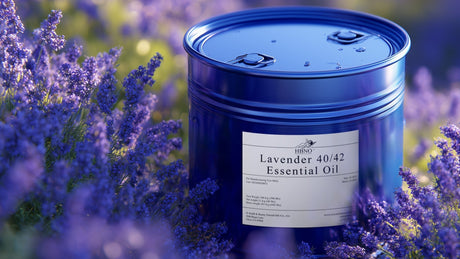Boils, medically known as furuncles, are painful, pus-filled bumps that form under the skin when hair follicles become infected, typically by bacteria such as Staphylococcus aureus. These infections can cause significant discomfort and, if not treated properly, may lead to further complications. While conventional treatments often involve antibiotics or surgical drainage, natural remedies have gained attention for their potential efficacy and minimal side effects. One such remedy is neem oil, derived from the seeds of the neem tree (Azadirachta indica), which has been used for centuries in traditional medicine for its therapeutic properties.

Understanding Boils: Causes and Symptoms
Boils begin as red, tender lumps that quickly fill with pus, becoming larger and more painful over time. They often develop in areas where sweat and friction occur, such as the neck, face, thighs, and buttocks. Factors contributing to boil formation include poor hygiene, compromised immunity, existing skin conditions, and minor skin injuries. Recognizing the early signs of a boil-such as localized redness, swelling, and tenderness-can facilitate prompt treatment and prevent the spread of infection.
Neem Oil: A Natural Antiseptic
Neem oil, also known as Indian lilac, is renowned for its antiseptic, antibacterial, and antimicrobial properties, making it a valuable natural treatment for various skin infections, including boils. Its efficacy in treating boils is attributed to compounds like nimbidin and azadirachtin, which exhibit potent anti-inflammatory and antimicrobial effects. These properties help combat the bacteria responsible for boils and reduce associated inflammation.
Application of Neem Oil for Boils
To utilize neem oil for treating boils, follow these steps:
- Cleanse the Area: Gently wash the affected area with warm water and mild soap to remove any debris or bacteria. Pat dry with a clean towel.
- Apply Neem Oil: Using a sterile cotton swab or clean fingertips, apply a small amount of pure neem oil directly to the boil.
- Frequency: Apply the neem oil three to four times daily until the boil heals. Consistency is key to achieving the desired results.
- Hygiene: Always wash your hands thoroughly before and after applying neem oil to prevent the spread of infection.
It's important to note that neem oil has a strong, distinctive aroma and may cause skin irritation in some individuals. Perform a patch test on a small area of skin before widespread application to ensure there is no adverse reaction. If irritation occurs, discontinue use and consult a healthcare professional.

Benefits of Using Neem Oil
In addition to its antimicrobial properties, neem oil offers several benefits that make it an effective remedy for boils:
- Anti-Inflammatory Effects: Neem oil contains compounds that reduce inflammation, alleviating pain and swelling associated with boils.
- Immune Support: Regular application can enhance the skin's natural immunity, helping to prevent future infections.
- Skin Healing: Neem oil promotes wound healing and may reduce the risk of scarring after the boil has drained.

Selecting the Right Neem Oil
When choosing neem oil for therapeutic use, it's essential to select a high-quality product to ensure safety and efficacy. Opt for organic, cold-pressed, virgin neem oil, as this extraction method preserves the active compounds responsible for its medicinal properties. Products labeled as "Neem Carrier Oil Virgin Organic" or "Organic Neem Carrier Oil" are ideal choices. These oils are unrefined and free from additives, providing the purest form of neem oil.
Precautions and Considerations
While neem oil is generally safe for topical use, certain precautions should be observed:
- Avoid Ingestion: Neem oil is toxic if ingested and should only be used externally.
- Pregnancy and Nursing: Pregnant or breastfeeding women should consult a healthcare provider before using neem oil.
- Allergic Reactions: Individuals with sensitive skin or allergies should perform a patch test prior to use.
- Children: Use caution when applying neem oil to children, and consult a pediatrician if necessary.
Complementary Natural Remedies
In addition to neem oil, other natural remedies may aid in the treatment of boils:
- Warm Compress: Applying a warm compress to the boil can help draw pus to the surface and promote drainage.
- Tea Tree Oil: Known for its antibacterial properties, tea tree oil can be applied topically to reduce infection.
- Turmeric Paste: Turmeric has anti-inflammatory and antimicrobial effects; applying a paste made with turmeric powder and water may expedite healing.
Before combining treatments, consult with a healthcare professional to ensure safety and avoid potential interactions.
When to Seek Medical Attention
While natural remedies like neem oil can be effective, it's crucial to monitor the progression of a boil. Seek medical attention if:
- The boil persists for more than two weeks without improvement.
- You experience fever or swollen lymph nodes.
- Red streaks emanate from the boil, indicating a possible spread of infection.
- Multiple boils develop, or boils recur frequently.
Prompt medical evaluation can prevent complications and ensure appropriate treatment.
Conclusion
Neem oil presents a natural, effective option for managing boils due to its potent antimicrobial and anti-inflammatory properties. By selecting high-quality organic neem carrier oil and adhering to proper application methods, individuals can harness the healing potential of this traditional remedy. As with any treatment, it's essential to monitor the condition and seek professional medical advice if necessary. Embracing natural solutions like neem oil offers a holistic approach to health and wellness, honoring time-tested practices while promoting healing and comfort.




